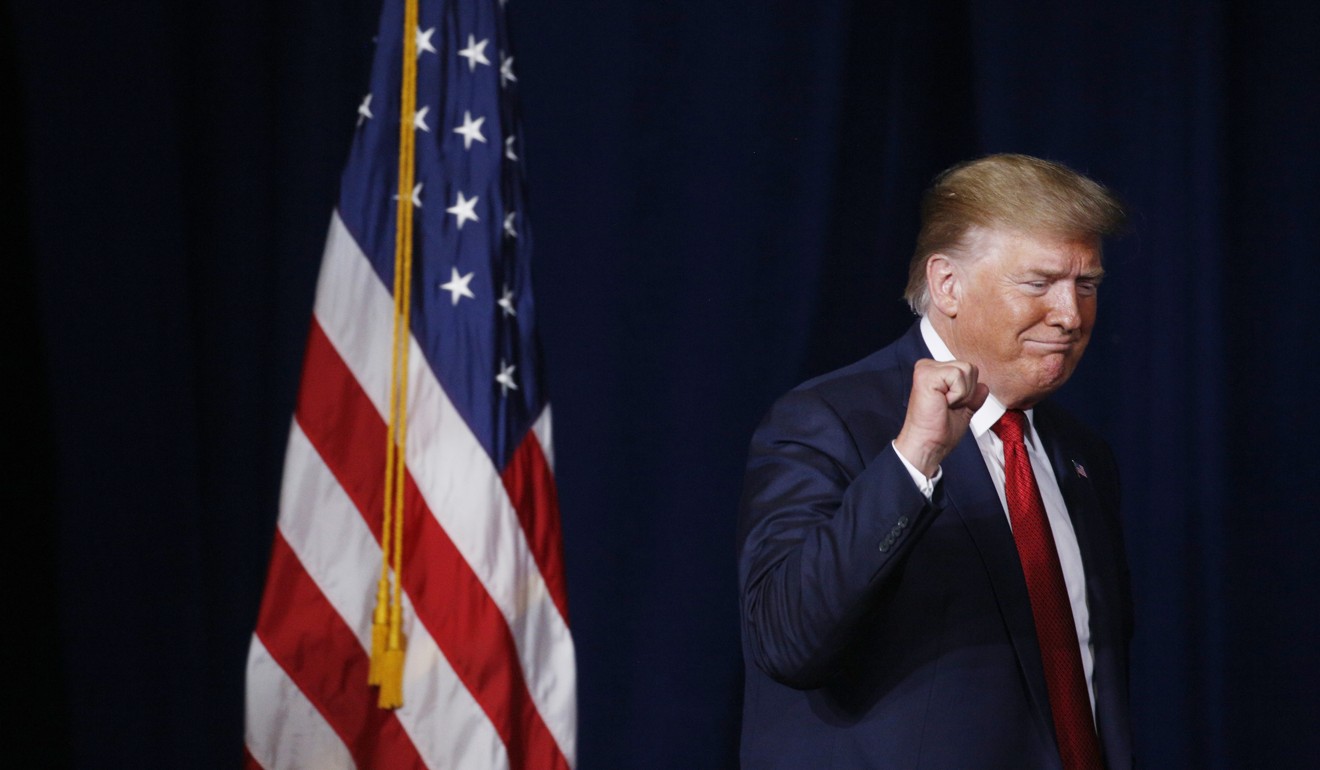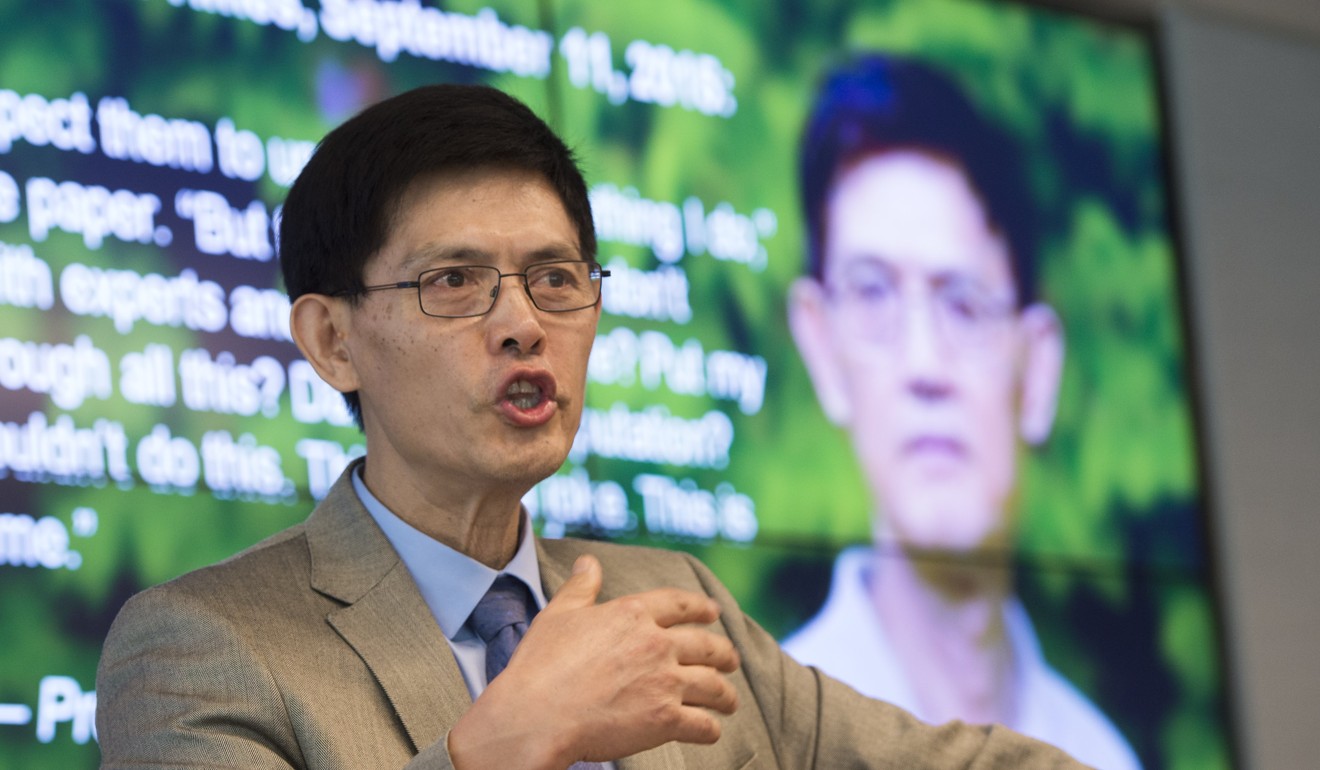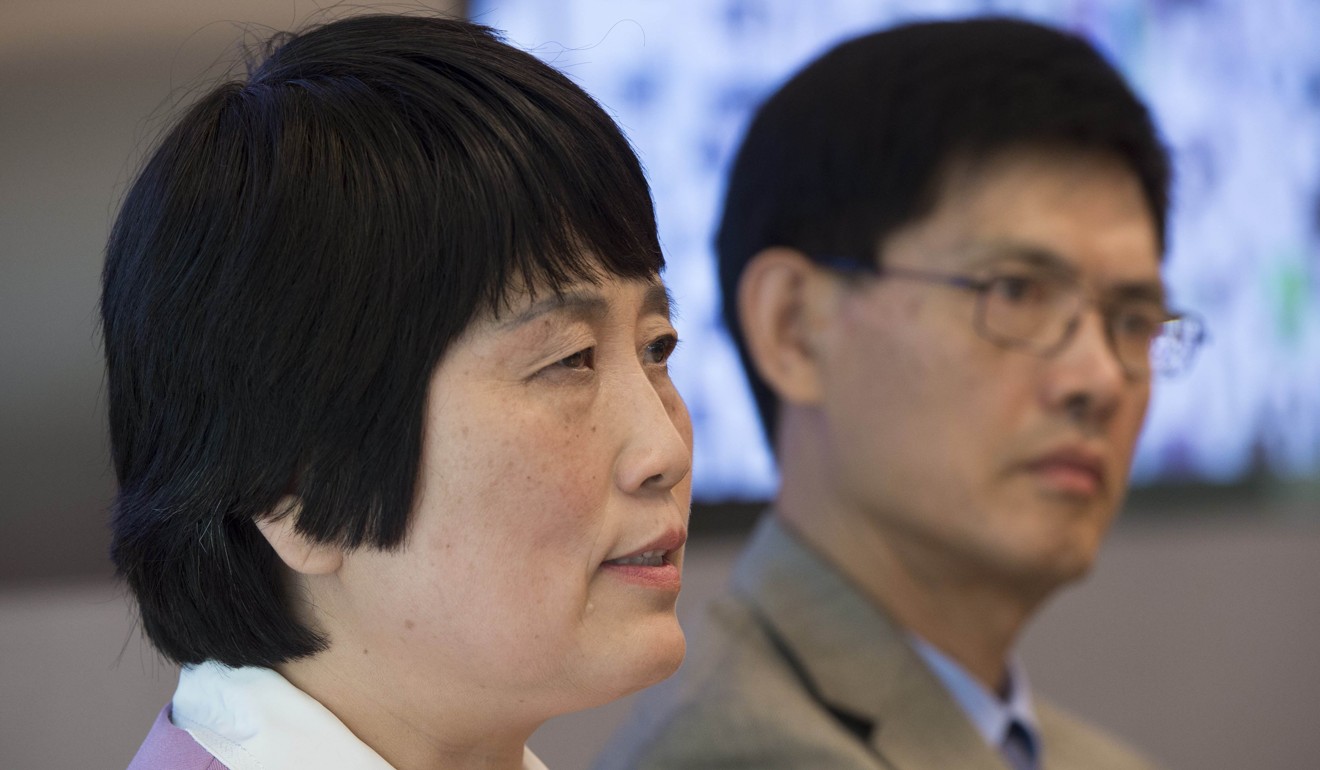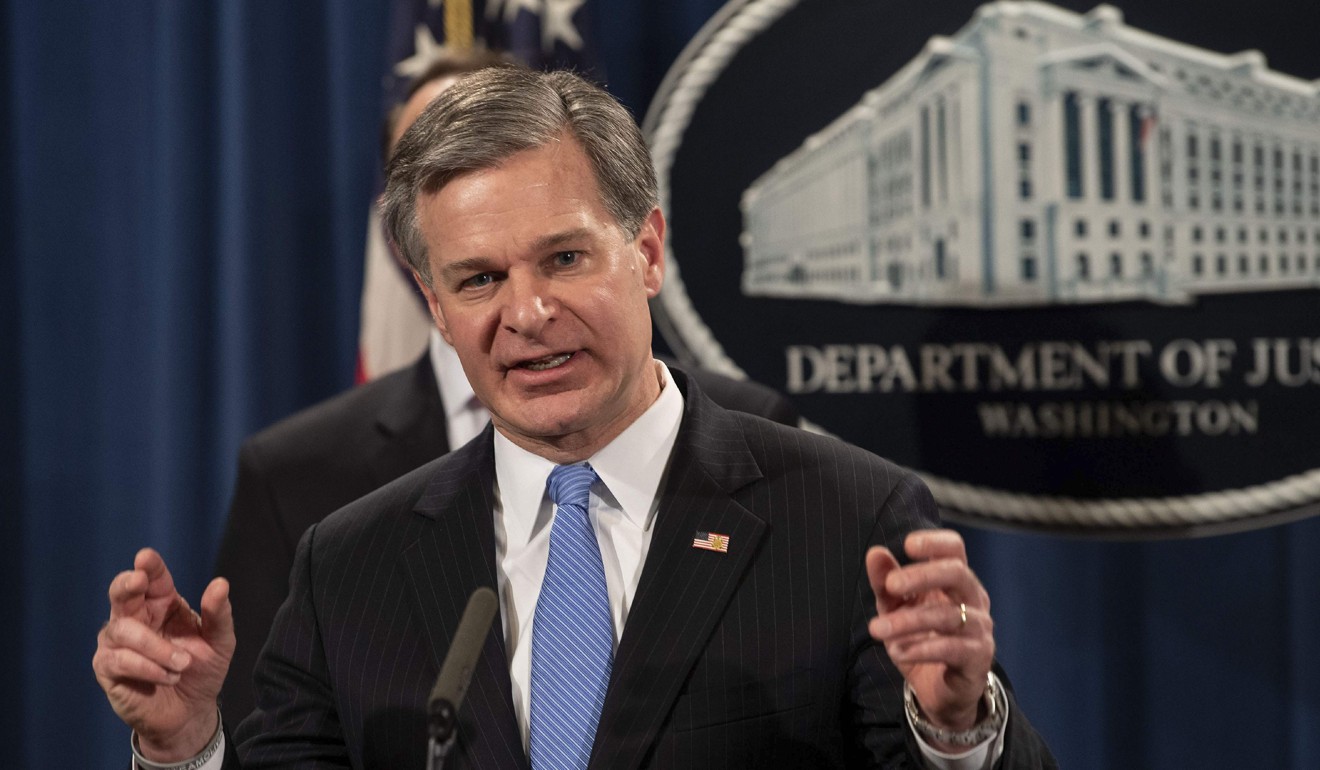Fearing a new ‘red scare’ atmosphere, activists and lawmakers fight targeting of Chinese-Americans
- The US has arrested scientists of Chinese origin on industrial espionage and other charges, and multiple times the cases have been dropped for lack of evidence
- ‘There are some legitimate concerns, but these are inflated, and Chinese-Americans are being demonised,’ the leader of an anti-discrimination group says

As more Chinese-Americans find themselves targeted in the increasingly bitter stand-off between Beijing and Washington, legislators, community groups and legal experts are pushing back in hopes of sending a message that enough is enough.
Prime objects of their frustration is the US government’s justice and intelligence communities, which have investigated and filed a slew of cases against scientists of Chinese origin on industrial espionage, theft of trade secrets and other charges.
Chinese-Americans readily acknowledge that Beijing targets people of Chinese descent and that the US has every right to defend itself. But a disproportionate number of recent cases end up snaring innocent people targeted through racial profiling, they argue, eroding constitutional guarantees and wreaking havoc with individual lives and the community’s reputation.
“We are at an adversarial reset of US-China relationship 40 years after the opening of relations,” said Jeremy Wu, a founding member of Asian Pacific American Justice, a group fighting against discrimination. “There are some legitimate concerns, but these are inflated, and Chinese-Americans are being demonised. They’re collateral damage, like children caught in a broken marriage.”
A cornerstone of recent efforts is an amendment to the National Intelligence Authorisation Act calling for greater accountability over the security establishment. Language contained in the act, which passed the House and awaits action in the Senate, would require the director of national intelligence to report how “the privacy and civil liberties of Americans of Chinese descent” are affected by counter-espionage efforts. It also calls for measures to prevent “unacceptable stereotyping, targeting and racial profiling”.
“Are we repeating history or in danger of doing so?” Representative Ed Case, a Democrat from Hawaii, said in introducing the amendment, citing the 120,000 Japanese-Americans interned during World War II. “This resolution is a flashing red light to our intelligence community: stop, look and listen.”
On other fronts, community and civil rights groups plan conferences next month in Washington and Palo Alto, California, to bolster unity and “fight against racial bias”. They are also suing the government for discrimination and wrongful arrest, have mounted public awareness campaigns, met with the FBI in an effort to stem excesses and set up a website in English and Chinese to report racial profiling.
Community groups acknowledge they’re fighting a rising tide as tensions fuelled by the US-China trade war spill over into culture, tourism and education arenas, stoking prejudice and distrust. US President Donald Trump has ratcheted up the anti-China rhetoric, tough China policies represent a rare area of agreement in Congress and some 60 per cent of Americans now view China unfavourably, up from 47 per cent in 2018, according to a Pew Research poll released this month.
The tensions crested on Friday, when Trump referred to Chinese President Xi Jinping as an “enemy” in a barrage of Twitter posts that also ordered US companies “to immediately start looking for an alternative to China”. Trump made his comments after Beijing announced new tariffs on US imports and, after the stock markets closed sharply lower, said he would impose additional tariffs on Chinese goods. By Monday, Trump reverted back to praise for Xi, whom he called a “great leader” during a press conference at the G7 meeting in France, even though he retained a more adversarial tone with regard to the trade war.
“Asian-Americans are affected whether they choose to or not by dynamics between the US and Asia,” said Aryani Ong, an advocate and former civil rights lawyer. She added that she was hearing of scientists who were discouraging their children from science careers, a step the US cannot afford strategically. “The current situation has created far more collateral damage than I’ve seen in 30 years of activism,” she said.
After the FBI and other security agencies urged colleges to monitor Chinese students and scholars over fears they may be stealing information for Beijing, 19 universities and associations – including PEN America – released a petition this month urging intelligence agencies to “tread carefully”.

The number of Americans of Chinese descent who have been investigated and prosecuted for espionage is worrisome, Case said. “Those convicted have received disproportionately high sentences and the too many exonerated have had their careers ruined,” he added.
In a bid to hold Washington more accountable and raise the cost of filing racially tinged cases, the American Civil Liberties Union (ACLU) is suing the government for discrimination on behalf of Xiaoxing Xi, a Temple University physicist arrested at gunpoint by FBI agents in front of his family in 2015 on suspicion of transferring technology to China. He was cleared of all charges just a few months later.

The ACLU is arguing that the same bias and discrimination that fuelled Xi’s indictment has led the FBI and the Justice Department to wrongly pursue and prosecute other innocent Americans of Chinese descent.
Legal scholar Andrew Chongseh Kim analysed 136 cases and found that defendants of Chinese descent accounted for just 17 per cent of those charged with economic espionage between 1997 and 2009. That figure tripled from 2009 to 2015, however, he wrote in a Cardozo Law Review article in December, as Washington increasingly focused on China’s rise.
Suspects of Chinese descent were also nearly twice as likely to see espionage cases dropped – suggesting that more defendants were innocent – and, if convicted, received average sentences twice as long as people with Western names, Kim found.
“The real risk is that legitimate concerns about China as an economic rival may be fuelling the flames of a new ‘red scare’,” Kim said.
Recent high-profile indictments subsequently dropped include that of hydrologist Sherry Chen, accused in 2014 of accessing a restricted US government database and stealing government property. In 2015, federal prosecutors dropped all charges without explanation, but she was fired anyway and is now suing the government for compensation.
Critics say many scientists and academics of Chinese descent also end up accused of such violations as using pornography, cheating on expenses or making inaccurate disclosures to investigators when prosecutors fail to find evidence of links to China.
“The way they’re going about prosecuting these cases is completely ham-handed,” said lawyer Peter Zeidenberg, who represented Chen in the database case. “There’s more collateral damage than protecting against espionage.”

Some of the worst collateral damage is to a scholar’s reputation, which has been built up over decades, critics say.
“The headlines when you’re indicted are vivid, and they’re on page one,” said Ronald Safer, who defended Michigan State University robotics professor Ning Xi over questionable expense-reporting charges. Xi was cleared and now teaches at Hong Kong University. “When the jury doesn’t reach a decision and the charges are dismissed, it happens on page 16.”
The FBI didn’t immediately respond to a request for comment. Justice Department spokesman Marc Raimondi declined to comment on specific cases but said some 80 per cent of espionage cases and most trade secrets cases involved China. “The Department of Justice conducts its investigations and prosecutions impartially, without regard to ethnicity of subjects,” he added.
The department altered its review procedures after a spate of high-profile indictments were reversed in 2015 to more carefully vet prospective national security cases. In June, Tulane University scientist Kelin Hu was accused of intellectual property theft only to see charges dropped a month later after prosecutors conceded that they couldn’t meet the burden of proof.
“The FBI’s mindset has already led to overzealous investigations,” said Patrick Toomey, a senior ACLU lawyer. “The fact that the Justice Department recently dropped yet another prosecution suggests that serious problems persist.”
In December, Wu, Ong, Kim and others met with FBI officials at the bureau’s Washington headquarters in a bid to stem excesses. During the hour-long meeting, each side presented their talking points and the parties agreed to stay in touch.
“They brushed by the racial profiling concerns,” Wu said. “I would hope, if it were an actual dialogue, they’d say they made some mistakes. We’re not there. It was more like two monologues.”

Harvey Rishikof, chairman of the American Bar Association’s Standing Committee on Law and National Security, said security agencies faced a tough challenge given that US industrial strength depends on innovation honed in universities and private labs. “How do we allow the best minds to work on these issues while still protecting against penetration in these area,” he said.
This situation is further complicated when a foreign government holds power over scientists through their relatives living in their country of origin. “It’s a logical result that those without ties to China don’t face,” Rishikof said. “That’s why for security agencies, those individuals may have a larger sense of being vulnerable.”
Community groups say the tone of suspicion is set from the top as administration officials speak of a US-China “clash of civilisations” and Trump rails against immigrants. In a 2018 private dinner as the trade war heightened, Trump told a roomful of chief executives that “almost every [Chinese] student that comes over to this country is a spy”, according to Politico.
Last month, FBI Director Christopher Wray said the bureau had nearly 1,000 economic espionage and intellectual property theft investigations open, nearly all leading back to China. This dovetailed with past comments by Wray that China uses professors, scientists and students to steal intelligence “in almost every field office that the FBI has around the country.”
Characterising students, professors and scientists as a national threat based on where they come from is misguided and would appear to encourage the profiling of Chinese-Americans who are engaged in innocent academic collaboration, said the ACLU’s Toomey.
Other say discrimination and crippling suspicion can end up driving Chinese-American scientists closer to China, creating a self-fulfilling prophesy. Last month, Bloomberg reported that Xin Zhao, a prize-winning physicist formerly at the College of William & Mary in Virginia moved his start-up to China after a federal inquiry led to a failed sting, airport stops and an unfounded child pornography search. “Nothing could be better for China than for the United States to throw out all the Chinese immigrants,” said Frank Wu, a law professor at the University of California at Hastings.
The amendment to the intelligence bill is supported by Senator Mark Warner, Democrat of Virginia and vice-chairman of the Senate Intelligence Committee; members of the Congressional Asian Pacific American Caucus; and others.
Beijing “frequently exploits the openness of our society to gain advantage,” said Nelly Decker, Warner’s press secretary, although “Senator Warner recognises that the challenge lies with the Chinese Communist Party, not the Chinese people.”
The amendment – and other efforts to counter discrimination toward those of Chinese descent – faces multiple hurdles, said Wu of Asian Pacific American Justice. “But it’s encouraging,” he added. “I try to be an eternal optimist that progress is being made.”